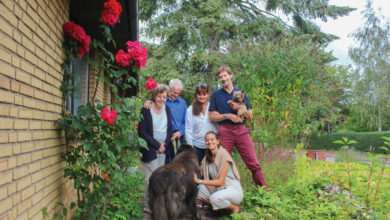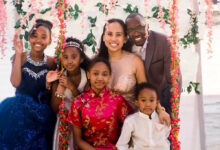World Elder Abuse Awareness Day
This week, on June 15, people worldwide joined together to recognize World Elder Abuse Awareness Day. It is an opportunity to raise awareness of the problem as a public health issue, so as to ensure the well-being and dignity of the elderly is assured.

Elder abuse can be physical, emotional, verbal or financial in form. Neglect is also a form of abuse. Many seniors do not report abuse or feel isolated and afraid to speak out. At times, they may lack the resources required to communicate their pain. As a result, the problem of elder abuse remains largely hidden behind closed doors unheard and unseen.
What is elder abuse? Elder abuse is any action or inaction by self or others that jeopardizes the health or well-being of a senior. The most common forms of elder abuse are financial, emotional, physical, sexual, and medical.
Elder victims commonly suffer from more than one type of abuse. The most frequently identified and reported types of elder abuse in Canada are financial and emotional.
Any senior can become a victim of elder abuse regardless of gender, sexual identity, race, ethnicity, income or education.
Elder abuse is often committed by someone known to the victim who is in a position of power, trust or authority. Approximately 25% of crimes against seniors are committed by family members, typically by their spouse or children.
Like other types of family violence, the dynamics of elder abuse are complex. Elder abuse is often impacted by the mental and physical conditions of both the abuser and the victim. These factors interact in ways uniquely dependent on the individuals involved and the situation. Common signs of elder abuse: confusion; depression or anxiety unexplained injuries; changes in hygiene; seeming fearful around certain people or worry when talking about money.
A vulnerable elder that has fallen victim to an abuser’s intimidation, deception, and/or brainwashing works mainly to the abuser’s advantage. Families, placing their trust in these caretakers, may misunderstand or misplace the frustration of their loved ones. In which case, their voices are stripped from them, unable to communicate their suffering.
Abuse is ongoing, for example, when family or household caregivers keep a disabled and failing elder isolated, left in the hands of their abuser’s for years. Would the victim be willing or able to identify, as an abuser, the sole person on whom they have come to depend for every function of daily living?
If you are a nurse or a personal support worker, working in such an incorrigible environment, where is your voice? To see such abuse is one thing, but what are you doing to change it? These are people’s lives, families’ loved ones, are you reprimanding improper procedure and abuse?
How often have attorneys and judges witnessed elders exhibiting this kind of psychological manipulation/impairment, to the extent that the elderly victim vehemently defends his own abuser?
How much longer are we going to enable weak legislation, which does little to nothing to provide protection to our loved one? Meanwhile, the caretakers, who knowingly take advantage of the elderly, facilitate a culture which fails to recognize the humanity in those they serve.
How long will we permit the victim’s weakness to be the system’s weakness – to permit our civil and criminal authorities to deceive us of the psychological and/or physical “hostage-taking” of vulnerable and abused elders?
To move away from hinging anti-abuse laws and enforcement on an elder’s putative freedom will undoubtedly touch on many more laws and procedures than I, as a family survivor of elder abuse and neglect – not a legal expert – can know, at this point.
I ask that all levels of government to work together. For the sake of the generations before us, seek to restructure what has time and time again let down the elderly. As human beings, we must do better.
We must find ways to show our seniors that elder abuse exists, that it is not tolerated, and that there is help available in our communities to cope. This includes finding ways not only to help victims, but to prevent abuse before it happens. We need to work together and stand up for those who built this country with their blood, sweat and tears.









Redes Sociais - Comentários